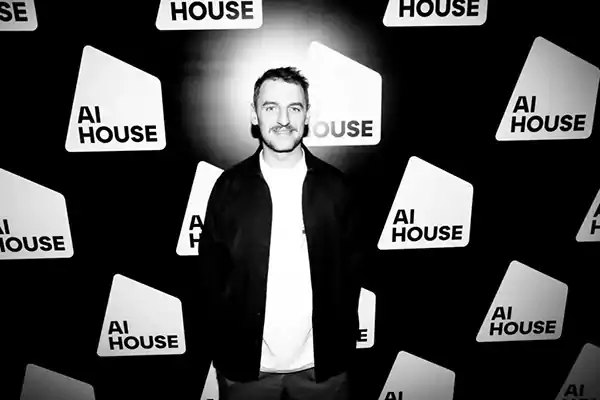
Roosh co-founder and SET University founder Sergey Tokarev told what the development of artificial intelligence is leading to and how this technology can change.
2023 has become a landmark for the IT industry: since the beginning of the year, the whole world has been talking about artificial intelligence technologies. In February, ChatGPT became available for users in Ukraine. The chatbot does not work only in the territories temporarily occupied by Russia.
Despite people are actively using the program around the world, many questions remain open. Will artificial intelligence be able to completely replace some of the experts? Which everyday tasks are most appropriate for using AI and how to do it as efficiently as possible? Who will be responsible if the technology harms a person?
The Roosh co-founder and SET University founder Sergey Tokarev have been promoting artificial intelligence and machine learning technologies in Ukraine for many years. Recently, in an interview with the Ukrainian media RBC, he told what the world expects from AI and how this industry will develop further.
— I think no one expected it. This powerful AI breakthrough that we are witnessing today happened very quickly. And this is only the beginning since technology keeps on developing. Currently, artificial intelligence solves simple tasks, but in a few years, it will show truly impressive results. Soon, we won’t be able to know for sure whether our interlocutor is a real person or an artificial intelligence unless we see them right in front of us.
— Absolutely not. I’d say it’s a complement to it. And today, we should not be afraid of artificial intelligence as it is designed to simplify our work, to take over boring everyday tasks. After all, the amount of data we encounter in work and private life is growing inexorably. And we, in turn, are slowing down in processing all this data. AI helps to process and systematize information.
True professionals get a new—and very powerful—tool, not a competitor. The most important thing today is to start understanding how artificial intelligence works and how it can be used. This is a completely new cycle of technological development for humanity, and those who adapt to the new conditions as quickly as possible will benefit from it.

— First of all, of course, you need to define the process to which you want to apply artificial intelligence. When you already understand what you want from it, the most important thing is to comprehensively formulate a prompt, that is, to describe the idea of AI-generated text, image, or code.
For example, you need a picture of a dog. If you just write “draw me a dog” – well… most likely, you will not like the result. For every parameter of the picture that you do not mention, AI fills up with assumptions—and they are unlikely to be any similar to the image of a dog you imagined. So, if you want to get a good image of a dog, it is important to describe in detail how you want it to look: a style of the image, colors, and background. What breed is the dog, what color is it, and what is its age? Should the drawing look like it was created by a child or an impressionist artist? Every detail of the task you give the AI is important.
These days, you can even formulate a prompt for one AI using another. Let’s say you need to generate an image using Midjourney. You can write to GPT-4 and ask it to generate a detailed prompt for this task.
— Not every artist.
It is ironic that earlier, when discussing artificial intelligence, everyone was sure that it would take rather over monotonous human work, but not creative processes. Now, we see exactly the opposite: AI has learned to work with texts and images. Of course, this makes people working in creative are worried.
I think, there will be only top professionals eventually. For example, now for developing a computer game, a company needs a creative department: a main artist and many specialists who generate ideas and create sketches. Now, there is no point in hiring all these people: simpler tasks can be done by artificial intelligence. And the main artist will only choose the best of the generated sketches and work with them.
AI will take over many simple creative tasks—both texts and music. However, if you are a super-expert, you will have a job and manage artificial intelligence.
— First of all, searching. I know that at Google, the development of artificial intelligence causes serious anxiety as they don’t have anything to oppose such things as, for example, GPT. And Google may lose. Why do you need an ad-driven search service, if ChatGPT can immediately give you a high-quality and accurate solution to a specific problem?
For example, I want the best washing machine. How can AI help me find it? First, it will analyze all the information about washing machines on different websites. Then, it will analyze the retail websites with reviews of real people on washing machines. And at the end, it will combine these data and give me the result: “This washing machine model is the best.” This answer won’t be affected by ads but by reviews from real buyers. It probably won’t be the absolute truth, yet it is much closer to reality than a list of links to websites including sponsored ones.
Another example is customer support. Artificial intelligence will be able to find answers to questions about a product or service in a blink of an eye. It will even be able to voice it! A few more years and you will never guess who is talking to you on the phone: a trained AI or a real person.
To some extent, technology can also replace assistants. Today, we all get a lot of calls, e-mails, and information that needs to be processed. At some point, you start spending more time on organizational stuff than on actual work. And here artificial intelligence can come in handy. It can be trained to process precisely the data you need and it will keep it confidential. It can analyze your mail, your calendar, and your to-do list—and it will make your life much easier.
I was listening to Reed Hoffman’s podcast, he is an American entrepreneur who co-founded LinkedIn. He was a founding investor of OpenAI. And in this podcast, Hoffman talks to ChatGPT, which is voiced for the record. That is, artificial intelligence has already become a co-host of the podcast, it understands human emotions and gives correct and relevant answers. This is absolutely incredible.
— The most pressing challenge today is the ethical one. Can we use publicly posted photos when working with AI? Or if the authors of the images or drawings you used for the dataset have a claim to it, do you have to delete it? Currently, ChatGPT is very limited ethically.
— I think so. States or private companies will develop technologies for themselves that will provide all the answers—even the roughest ones. Will we be able to get the information about it? I do not know. After all, such authors do not have any desire to create a large system for public use. They want to cover their local needs so they do not need to advertise it. I think many ChatGPT analogs will be created in the near future.
— There is no existing legal system that was ready for such a development of artificial intelligence. We used to have clear laws and people who are responsible for breaking the laws. But who will be responsible for an AI algorithm if it harms a human? The author of the algorithm or the user? Or maybe the algorithm itself? If residents of different countries are involved, which jurisdiction should be applied? These are difficult questions to which no one has an answer yet. The world has built the existing legal system for centuries, and now we have to change it dramatically.
